‘Dodgy Jackie’ Trad leaves the stage, but is it enough for Labor to hold government?
It speaks volumes that when Jackie Trad left the top tier of Queensland politics, it took five ministers to replace her.
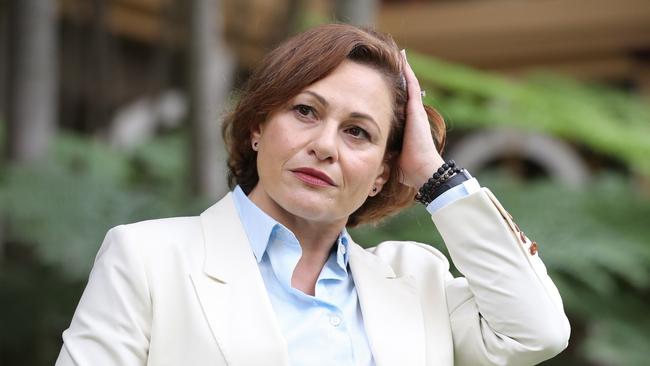
It speaks volumes for the hole Jackie Trad left in a stunned top echelon of the Queensland government that it took five ministers to replace her when her duties were carved up this week.
Every leader needs a Trad to crack the whip and at times crack heads, and this is especially true of Annastacia Palaszczuk, the nation’s second longest serving Premier behind Victoria’s Dan Andrews, but arguably the most vulnerable.
Her partnership with Trad was the cornerstone of the two-term state government and the uneasy accommodation it embodies between Labor’s competing tribes and a city-country divide that is more sharply etched in Queensland than any other state.
Palaszczuk is cut from the conventional cloth of a Queensland Labor leader: cautious and conservative in approach, she hails from the factional Right in a line that can be traced back to Wayne Goss and Peter Beattie.
Trad was the most dominant figure in the state’s political Left to emerge since Anna Bligh, her mentor when she was cutting her teeth as a ministerial adviser to the future premier.
From the time she burst on the scene as Bligh’s replacement in parliament in 2012 — after Labor was reduced to barely a netball team by the Liberal National Party’s Campbell Newman — to her bombshell resignation last Sunday over corruption allegations, Trad was a force of nature who engendered shock and awe among caucus colleagues.
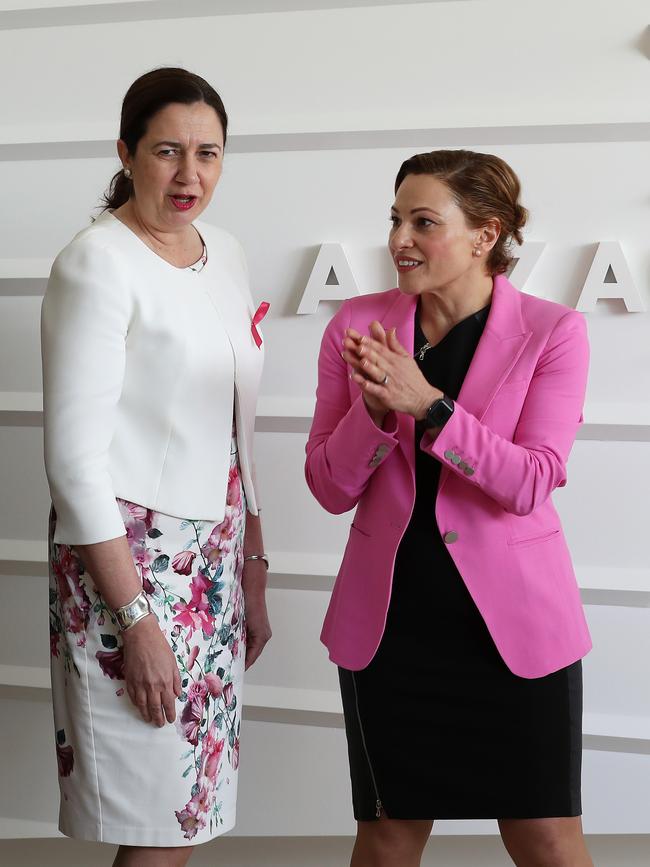
Shock that she would nonchalantly do as she liked as deputy premier and treasurer after 2017; awe that she got away with it time after time, even when it meant crossing Palaszczuk.
Trad’s power flowed from her brimming self-confidence, ability to match her ambition and a power imbalance at the heart of the state government that she exploited ruthlessly.
The thing to understand is the outfit Palaszczuk leads is like no other, a product of Labor’s wipe-out at the polls eight years ago. It means the Left has the numbers in caucus, cabinet and the party’s governing councils and, in Trad, a factional warrior who was prepared to use them. This represents a reordering of the traditional power dynamic inside Queensland Labor where the Right held sway, especially while the party governed.
To appreciate why, we need to cast back to the caucus meeting that took place on March 28, 2012, in the hushed aftermath of Labor’s humiliating state election defeat. The ALP was reduced to a rump of seven seats, terminating 13 consecutive years in power under Beattie and Bligh. Palaszczuk, the only senior minister left standing, had became leader after Bligh announced she was quitting her seat of South Brisbane, opening the door to Trad. The remaining MPs gathered glumly at an art gallery in Ipswich.
They made the crucial decision to dump Bligh’s deeply unpopular privatisation program and re-engage with the big left-wing unions that had led a labour movement revolt against the asset sales. These had the resources and organisation to rebuild the parliamentary wing. On the Right, the once-dominant Australian Workers Union had slid into decline, losing powerbroking boss Bill Ludwig to retirement as well as the critical mass of delegates to control candidate preselections and the party machinery.
The ascendant Left cleaned up. When Palaszczuk won her astonishing victory in 2015, campaigning shamelessly against Newman’s version of privatisation, the Left became the largest faction in caucus and consequently cabinet. As one prominent Labor board appointee puts it: “They filled many of the seats with these inner-city staffers and hangers-on not thinking they would win … compare them to the quality of MPs and ministers under Goss and Beattie, it’s a joke.”
Trad, 48, revelled in her reputation as the government’s strong woman. By both necessity and temperament, the Premier held herself above the fray, while her headstrong deputy threw herself into it. Trad’s bootprints were everywhere.
She championed formerly lost causes for state Labor such as abortion law reform and tree clearance controls on farmers that had been repealed under Newman. But if there is one issue that has bedevilled Labor at both the state and federal levels in Queensland it is the Adani coalmine, the pressure point where demands for climate action intersect with real-world concerns about jobs and investment.
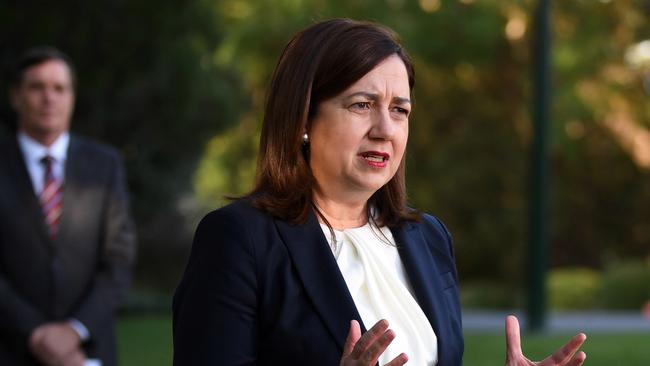
Bill Shorten tried to walk both sides of the street on Adani at last May 18’s federal election and came a cropper by sending one message to green-minded city voters that he was leery of the project, while assuring struggling regional communities in Queensland that he wouldn’t stand in the way if it met environmental standards and stacked up financially. Federal Labor was hammered in the Sunshine State, which sent a record 23 LNP MPs to Canberra.
Until the integrity questions took hold, the Adani issue personified Trad. The accusation is she went rogue to deploy the Left’s numbers in cabinet and her reach across the government to drag the chain, if not block the mine before it was hurriedly green-lit by the state government in the federal election wash-up. Trad has vehemently denied this, telling Inquirer last year: “I would say that criticism is from people who have an unrealistic view of what happened in cabinet and don’t actually understand what happened in the government … I would probably suggest or back my hunch these are people who are unprepared to put their names to such comments.”
She got that right. Even now, MPs who privately welcomed her fall baulk at going on the record, such is her fearsome reputation. The most damaging insinuation for Labor is that Trad put her own survival in lineball South Brisbane — the inner-city electorate she took over from Bligh — ahead of the good of the government. Adani plays to this “Jackie first” theme with Trad facing an uphill battle to retain her seat at the October 31 state election. The threat to her is not from Labor but the Greens, who broke into state parliament in neighbouring Maiwar (at the expense of the LNP’s Scott Emerson) in 2017. Ironically, LNP preferences saved her then. But not this time. The LNP’s decision to preference the Greens above Labor in South Brisbane is near-fatal for Trad.
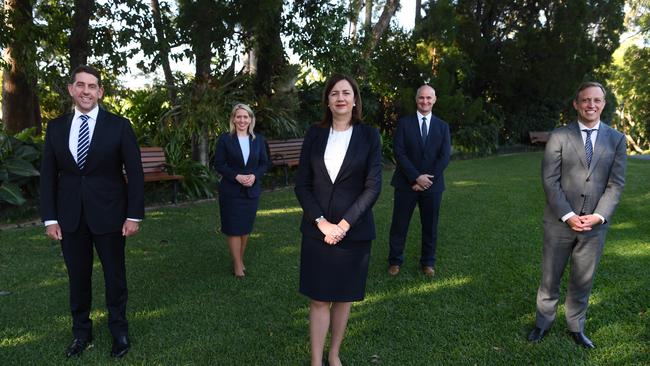
That’s assuming Trad recontests, which is essentially in the hands of the Queensland Crime and Corruption Commission despite her insistence she will fight on in South Brisbane. Trad’s run-in with the agency last year over her family company’s ill-fated purchase of an investment property in Woolloongabba would have finished most MPs.
The $700,000 house was located in a part of the electorate where values stood to benefit from the $5.4bn Cross River Rail connection, a project she was responsible for. The Courier-Mail pinged her for failing to declare the purchase, which she said was made by her husband. Trad was forced to sell and eventually apologised to parliament for what she said was an honest mistake. Oversight of Cross River Rail went to Tourism Minister Kate Jones, a winner in this week’s ministerial reshuffle.
In its assessment of a complaint from the LNP opposition, the CCC agreed there was no corruption or dishonesty on Trad’s part, but Palaszczuk nevertheless accepted its recommendation that an intentional failure by a minister to declare a conflict of interest be beefed up to a criminal offence carrying up to two years’ jail.
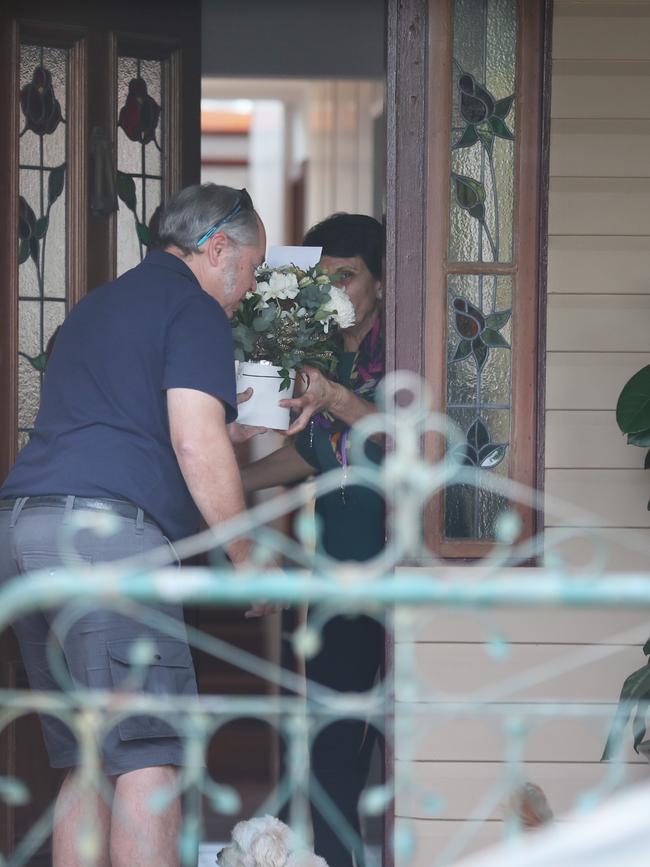
Next time, there would be no such out for Trad. She announced last Saturday that she was standing aside from her positions as deputy premier, treasurer and minister for Aboriginal and Torres Strait Islander partnerships over a separate CCC probe into her alleged involvement in the recruitment of the principal in the new Inner City South Secondary College, also located in her electorate.
The key difference was that the agency had launched a formal investigation, as opposed to the preliminary assessment it had conducted on the investment property purchase. Those familiar with the CCC’s processes say the distinction is important. “The CCC doesn’t do that until is has all its ducks in a line, especially in a case with this profile,” one Labor figure said. Initially, Palaszczuk said she would assume Trad’s ministerial responsibilities but within 24 hours the Premier was fronting the cameras, announcing her deputy’s resignation from cabinet.
Senior members of Trad’s own staff were not in the loop. The deputy premiership went to Health Minister Steven Miles, second in line in the Left after Trad, underlining the factional order. A former ministerial adviser who was elected to parliament in 2015, Miles is well liked in caucus and has performed strongly in the COVID crisis to date. But it’s fair to say he was not formerly viewed as leadership material.
The new Treasurer, Cameron Dick, would have been in contention to succeed Bligh had he not lost his seat in the Labor carnage of 2012, leaving him in limbo until he returned to parliament in Palaszczuk’s election triumph three years later. He is a product of the AWU Right, and his elevation is seen as an overdue check on the power of the Left.
For all her energy and clout, Trad was a lightning rod for discontent with the government, especially in the restive and electorally pivotal regions where Adani is a poison pill for Labor. There, she is blamed for pandering to the Greens to save her cosmopolitan seat. The drag she exerted on the ALP vote is revealed by internal LNP polling conducted in Brisbane ahead of March 28 local government elections: Trad’s net approval was in the -30s compared with a positive rating approaching 10 for Palaszczuk, whose numbers have continued to strengthen on the back of the successful effort to dampen coronavirus.
Jones, a protege of Beattie from the centrist Old Guard faction, took on Dick’s important State Development portfolio, burnishing her future leadership prospects. The shake-up was rounded out by the promotion to cabinet of Gladstone-based MP Glenn Butcher as Minister for Regional Development and Manufacturing and the transfer of Trad’s responsibility for indigenous affairs to Fire and Emergency Services Minister Craig Crawford.
Opinion is divided in caucus whether Trad was pushed or whether she jumped, an entirely uncharacteristic move. The tangled sequence of events in the principal’s appointment to City South high school certainly raises more questions than answers. What’s known is that a woman named Tracey Cook was the original choice for the job.
Last November 28, Education Department director-general Tony Cook (no relation) issued a statement confirming that Trad met the highest ranked candidate, presumably Tracey Cook, for an “informal discussion” lasting about 15 minutes in Trad’s office. This had been arranged by the department, he insisted. The job was subsequently readvertised and went to another applicant, Kirsten Ferdinands. Trad told state parliament this was on the basis of new demographic modelling showing enrolments would exceed 1600 students, allowing the department to consider a higher-ranked contender than Cook. However, Opposition Leader Deb Frecklington says that files obtained through a Right to Information request suggest the data was available before the recruitment process began.
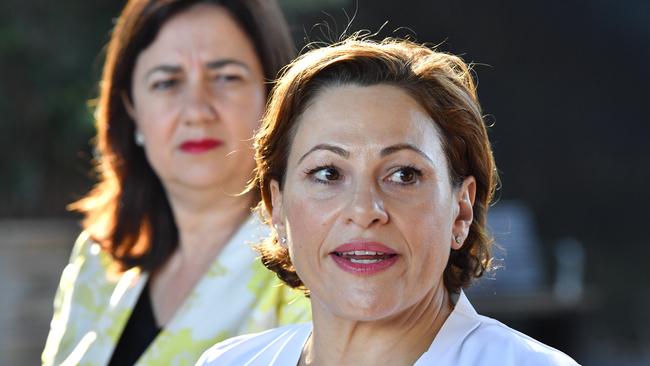
Trad insists she did nothing wrong, that none of the applicants was known to her and she expressed no view on who should get the job. Yet her detractors say self-preservation in South Brisbane would have given her motive to interfere in an appointment that was of keen interest to local voters.
What changed between Saturday and Sunday when she went from standing down to resignation? Palaszczuk said Trad had accepted the government could not afford the “distraction” during the pandemic, but the state election, barely five months away, loomed large. The LNP previewed its attack lines in the recent, closely fought Currumbin by-election, casting Palaszczuk as too “weak” to rein in “Dodgy Jackie”.
The politics of the Labor backrooms that propelled Trad to the second highest political office in Queensland had turned, causing her downfall. The one person she could not defy was Left factional boss Gary Bullock, head of the powerful United Workers Union, the new power behind the throne commanding the allegiance of no fewer than 18 state Labor MPs.
When Trad lost his support, she lost her lifeline.
